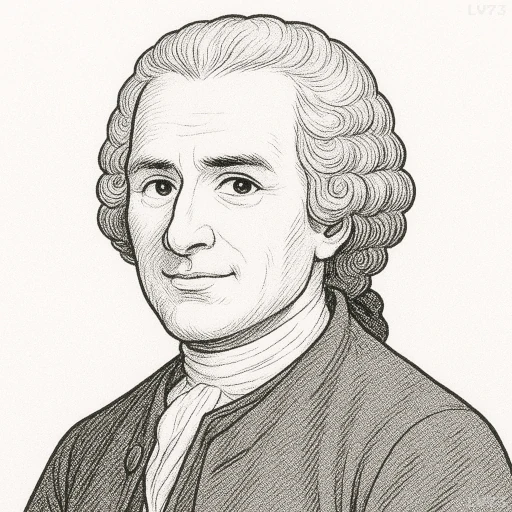“I have always said and felt that true enjoyment can not be described.”

- June 28, 1712 – July 2, 1778
- Born in Geneva
- Philosopher, political philosopher, writer, composer
table of contents
Quote
“I have always said and felt that true enjoyment can not be described.”
Explanation
In this quote, Jean-Jacques Rousseau suggests that genuine enjoyment or pleasure is an inherently personal and intangible experience that cannot be adequately captured by words. Rousseau is emphasizing the idea that the most profound feelings of joy, satisfaction, or contentment are often beyond the reach of language and rational explanation. This reflects his broader philosophy, which emphasizes the limits of reason and the richness of human experience that cannot always be expressed through logical discourse or articulation.
Historically, Rousseau’s time was marked by the Enlightenment, a period in which reason and intellect were highly valued as the primary tools for understanding the world. Rousseau, however, often felt that emotion and feeling were equally important and that human experience could not be wholly explained through reason alone. His emphasis on the personal, often ineffable nature of true enjoyment contrasts with the Enlightenment ideals of systematic knowledge and rational control. In his works, he argued that society often distorts or diminishes authentic experiences, and the pursuit of happiness or fulfillment cannot be reduced to mere calculation or external validation.
In modern times, this quote remains relevant as it touches on the subjectivity of human experience. In an age where much of life is often documented, shared, and categorized, Rousseau’s insight serves as a reminder that the most meaningful and deep pleasures are often those that cannot be fully conveyed to others. For example, moments of personal joy, whether in nature, intimate relationships, or personal achievement, may be felt deeply but are difficult to articulate in ways that do justice to their complexity. Rousseau’s perspective encourages us to value and embrace the individual nature of true enjoyment and to recognize that not every meaningful experience needs to be explained or shared to be valid.
Would you like to share your impressions or related stories about this quote in the comments section?
